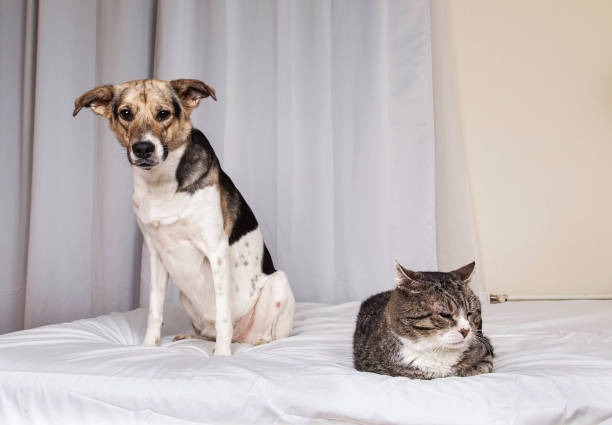When choosing healthcare for our furry family members, the stakes and options are plentiful. However, not all veterinary clinics offer the same level of care or range of services. This is why opting for a comprehensive animal hospital can be a pivotal decision for your pet’s long-term health and happiness.
What Does Comprehensive Care Mean?
In veterinary terms, comprehensive care refers to a full spectrum of medical attention covering all stages of a pet’s life—from pediatric care for puppies and kittens to senior care for older pets. It involves preventive care, diagnostic services, medical treatments, and emergency services—all under one roof.
Benefits of a One-Stop Medical Solution
-
Consistency of Care: Regular interactions with the same medical team help build a detailed health history and stronger relationships between your pet, you, and the veterinary staff.
-
Convenience: Having a single location for all health needs is convenient and can prove crucial in emergencies.
-
Comprehensive Service Range: Everything is available in one place, from routine vaccinations to complex surgeries.
Why Comprehensive Care Is Essential
Opting for a veterinary hospital that offers comprehensive services not only streamlines the care process but also ensures that your pet gets attention from professionals who understand the entire history of their health. This holistic view is beneficial for accurate diagnostics and tailor-made treatment plans.
Regular checkups are the bedrock of preventive care. A routine vet checkup allows veterinarians to assess your pet’s health and catch any issues early before they develop into more severe conditions. It’s an essential component of a proactive healthcare approach.
Areas Covered Under Comprehensive Care
Typically, a comprehensive animal hospital will offer the following:
-
Routine Checkups and Preventive Care
-
Diagnostics like X-rays and Blood Tests
-
Medical treatments, including Pharmacy Services
-
Emergency Services
-
Specialized treatments like Dermatology, Neurology, etc.
Specialized Treatments
One of the specialized treatments often overlooked in pet care is dentistry. Your pet’s teeth and gums are as crucial as any other aspect of their physical health. Comprehensive animal facilities like Siskiyou Veterinary Hospital offer extensive dental care, from routine cleanings to more complex dental surgery, ensuring your pet’s oral health is not left unchecked.
Advanced Care Options
Access to advanced medical care is indispensable if your pet requires surgery. Comprehensive animal hospitals offer various surgical options, including necessary facilities for complex procedures. For instance, if you require reputable vet surgery in Medford, OR, choosing a full-service hospital can ensure that your pet is in expert hands with state-of-the-art technology.
Long-term Health Monitoring
One of the lesser-discussed yet significant advantages of sticking with a comprehensive animal hospital is the ability to effectively monitor a pet’s health over time. A comprehensive facility will have records of every visit, including details on growth, development, and any previous ailments, along with their treatment outcomes. This historical health data is crucial when identifying trends, such as a subtle decline in health or recurrent issues, allowing for more accurate predictions and early interventions.
Integrated Care Plans
With access to a broad range of diagnostic tools and expert opinions from various specialties under one roof, comprehensive animal hospitals can develop integrated care plans that consider every aspect of a pet’s health. These plans might include nutrition advice, routine health check schedules, physical therapy, or behavioral counseling, ensuring a holistic approach to curb, manage, or heal from physical or mental health issues.
Evaluating a Comprehensive Animal Hospital
Choosing the right animal hospital is a decision that should be made carefully. Here’s what you should look for:
-
Accreditation: Look for facilities accredited by national boards or local authorities, ensuring adherence to specific standards of care.
-
Facilities: Tour the hospital to check for cleanliness, organization, and the availability of advanced medical technology.
-
Staff: Skilled, compassionate veterinary professionals who are enthusiastic about continuous education are ideal.
-
Reviews: Review other pet owners’ testimonials to gauge their experiences.
Questions to Ask When Visiting a Vet Hospital
When visiting a vet hospital, it’s essential to ask the right questions:
-
What range of services do you provide?
-
How do you handle emergencies?
-
Can you tell me about your staff’s qualifications and experience?
-
What are your hours of operation?
-
How do you keep up with the latest in veterinary care?
The Role of Technology in Modern Veterinary Care
Technology plays a crucial role in modern veterinary care. From advanced imaging like MRI or CT scans to the latest in surgical tech, comprehensive pet hospitals are equipped to handle a variety of medical scenarios with precision and care.
Educational Resources and Support Groups
Comprehensive animal hospitals serve as educational centers, offering workshops and resources on pet care and diet alongside hosting support groups for specific pet health issues. These initiatives enhance community knowledge and support networks, improving overall care standards.
Final Thoughts
Choosing a comprehensive animal hospital for your pet ensures they receive the highest level of care across all aspects of their health. This integrated approach helps maintain ongoing health and prepares you for any unexpected situations. Remember, investing in the best possible care for your pet is investing in their happiness and longevity.

